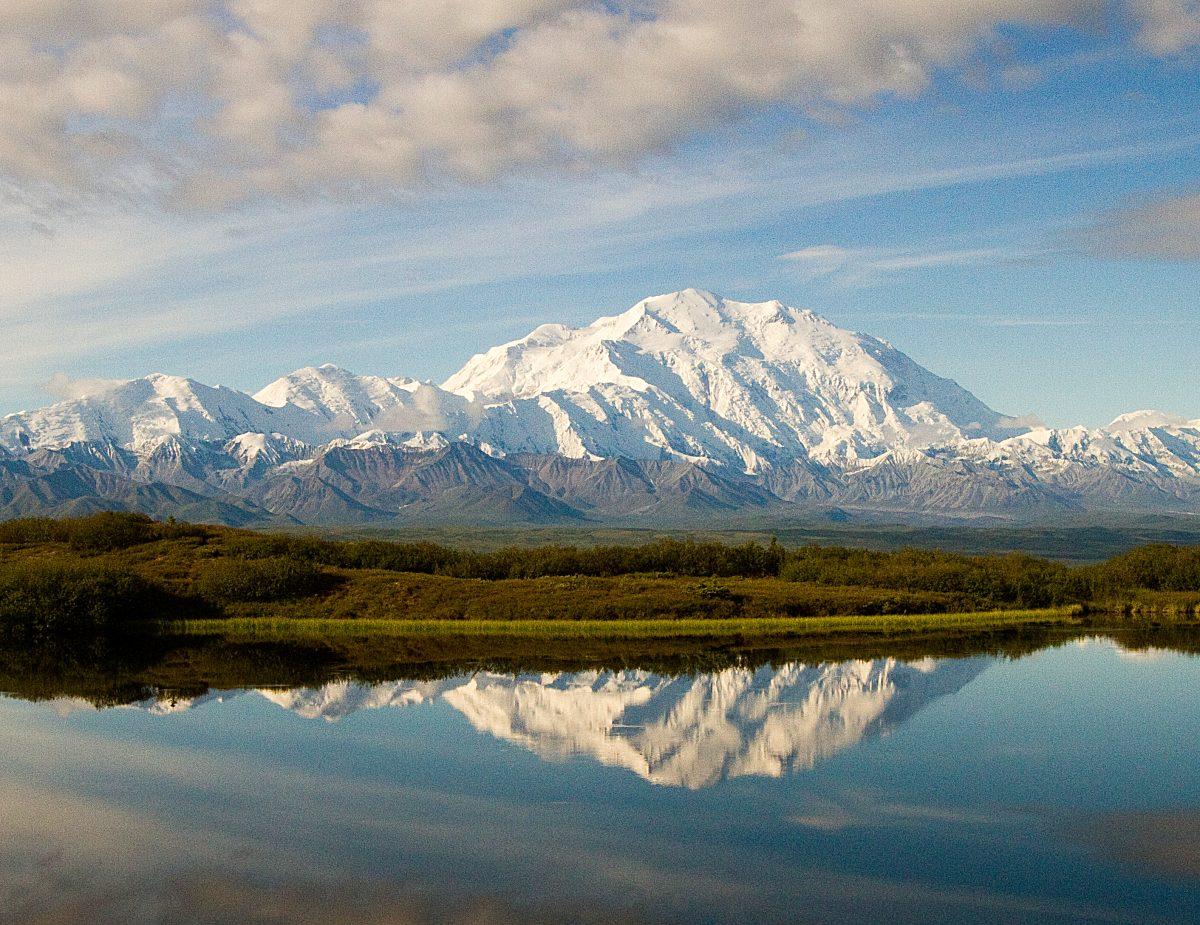During the inaugural address on Jan. 20, President Donald Trump claimed that “we will restore the name of a great president, William McKinley, to Mount McKinley where it should be and where it belongs.”
He was referring to one of the first executive orders he would make, to rename Denali, the tallest peak in North America. The name has since been reverted back to Mount McKinley to honor the 25th president of the United States, an Ohio native who never stepped foot in the state of Alaska.
The president’s reasoning for the change was the fact that “[William] McKinley made our country very rich through tariffs and through talent. He was a natural businessman.”
I have no intention of discrediting McKinley’s accomplishments during his term, but his economic feats do not substantiate the reversal of the mountain’s traditional name.
Denali, which translates to “The Great One,” was termed by the Athabaskan-speaking Koyukon tribe. As residents of the Yukon-Kuskokwim River basin, the tribe has been the mountain’s closest inhabitants for thousands of years. The Alaskans have long relied on this land and its life-sustaining resources, lending them an immense appreciation and unique relationship with the region.
After being unofficially recognized as Denali for centuries, the mountain was termed Mount McKinley in 1896 when gold prospector William Dickey learned of William McKinley’s election as the 25th president. The candidate’s platform included tying American currency to — you guessed it — gold.
In 2015, the mountain was restored back to its native name, 40 years after the Alaskan government had requested it be formally recognized as Denali. The official order explained that the “local Athabascan name for the mountain” would be honored and that “President McKinley never visited, nor did he have any significant historical connection to, the mountain or to Alaska.”
Trump has now reversed this order.
According to Fox News, Senator Lisa Murkowski of Alaska called the president’s plan to rename the mountain “awful.” Murkowski reinforced her stance with the support of fellow Alaskan Senator, Republican Dan Sullivan, who very relevantly shares a birthplace with former President William McKinley.
Although he held a more neutral position after the executive order was official, according to Anchorage Daily News, Sullivan was not in support of the decision either.
In 2015, President Trump released a statement claiming that the name change to Denali was a “great insult to Ohio,” McKinley’s home state. Despite sharing Ohio roots with the former president, Sullivan certainly did not share this opinion with the current one.
The name being overturned just a decade later comes across as spiteful, contradictory and just plain confusing for many U.S. citizens and other nations alike.
While it may not be obvious why this should matter to non-Alaskans, it is worth considering two things: what the name change has accomplished and for whom the name change is most relevant.
Many Alaskan tribes fought extensive battles for sovereignty and rights in their native land. After this, the act of overriding their chosen name for one of their most culturally significant landmarks is an unnecessary overstep.
North Carolina is no stranger to this incident either. Look in any direction, and you will find names that are reminiscent of the colonialism that drove the Lumbee, Cherokee, Catawba and many more westward off of their land.
Back in 2015, the push for Denali to become the mountain’s official name was part of a larger movement to reverse the pattern of colonial exclusion of Indigenous names and practices. Recognition and respect matter equally to nearly any tribe as they would to any other entity or leader.
During a state of political turmoil, the decision to rebrand a mountain whose name had caused little distress will carry unfortunate side effects. It offers another opportunity for division at a time when this country should embrace any chance for unity.
In reality, this change may only have a partial effect. As reported by CBC News, Alaskan and four-time winner of the Iditarod Sled Dog Race, Jeff King, holds the popular belief that “Alaskans will never stop calling the peak Denali, its Alaska Native name.”
In the end, how we honor is just as important as who we honor, and I think we ought to stick a little closer to home next time.














